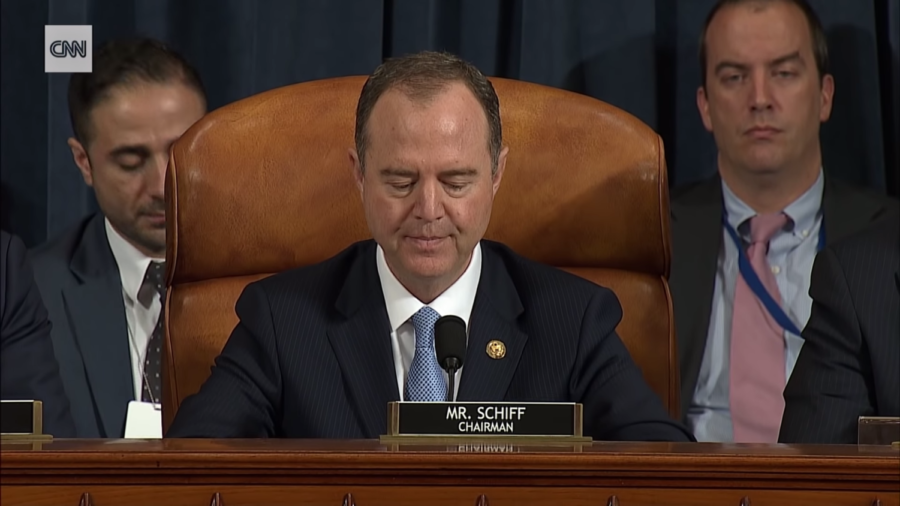Editorial: Impeachment policies represent judicial fairness
House Intelligence Committee Chairman Adam Schiff speaks during the opening of public testimony in the impeachment inquiry into President Donald Trump.
December 5, 2019
If you’ve been following the news cycle, you’ll know that for the past couple of weeks, the United States House of Representatives has been hosting impeachment hearings. In these hearings, various people have come before the House to share their testimony regarding various offenses claimed against President Donald Trump.
When these hearings conclude, members of the House of Representatives will draft Articles of Impeachment outlining the specific offenses for which they believe the president should be impeached. The House will then hold a vote where a simple majority can officially impeach the president.
Impeachment is simply an act that will send President Trump to a trial with the United States Senate acting as the jury. It is worth noting that impeachable offenses include treason, bribery or other high crimes and misdemeanors, but conviction in the Senate is not criminal in nature. The only punishment is removal from office.
For that reason, impeachment mustn’t necessarily be for a crime. Historically, the House of Representatives has enabled “high crimes and misdemeanors” to blanket many offenses that aren’t criminal in nature. In fact, over two-thirds of all charges in Articles of Impeachment drawn by the House have not explicitly charged the accused of a crime.
It is likely that President Trump will be impeached, making him the third president ever to be impeached. It is unlikely that President Trump will be removed from office, however. The Senate requires a two-thirds majority to remove an impeached president.
The reasoning for this is that the House is currently controlled by a majority of Democrats while the Senate is currently composed of a majority of Republicans. In times as politically polarizing as these, party alliance could be enough to keep President Trump in office.
Impeachment and removal from office have been likened to our judicial system where the accused is allowed a trial by a jury of his or her peers. This is accurate in that charges are brought against a public official (by the House) and a trial is held (by the Senate).
And it certainly is a nice idea to think that we would give the president of the United States a fair opportunity to defend himself but that justice is the ultimate goal. That, however, is untrue.
There isn’t a standard of proof by which senators or congressmen must judge evidence. In criminal trials, jurors need to be confident beyond reasonable doubt that the accused is guilty. In impeachment, senators and congressmen make their own judgment call.
That’s a good thing though. Believe it or not, that makes the process more fair. Impeachment isn’t a black and white process, and it shouldn’t be viewed as such. The Constitution is purposefully vague about impeachment in order to allow Congress the power to remove people as it sees fit. Impeachment and conviction are not a search for truth but rather a method for Congress to exercise the power granted to it in the Constitution.







